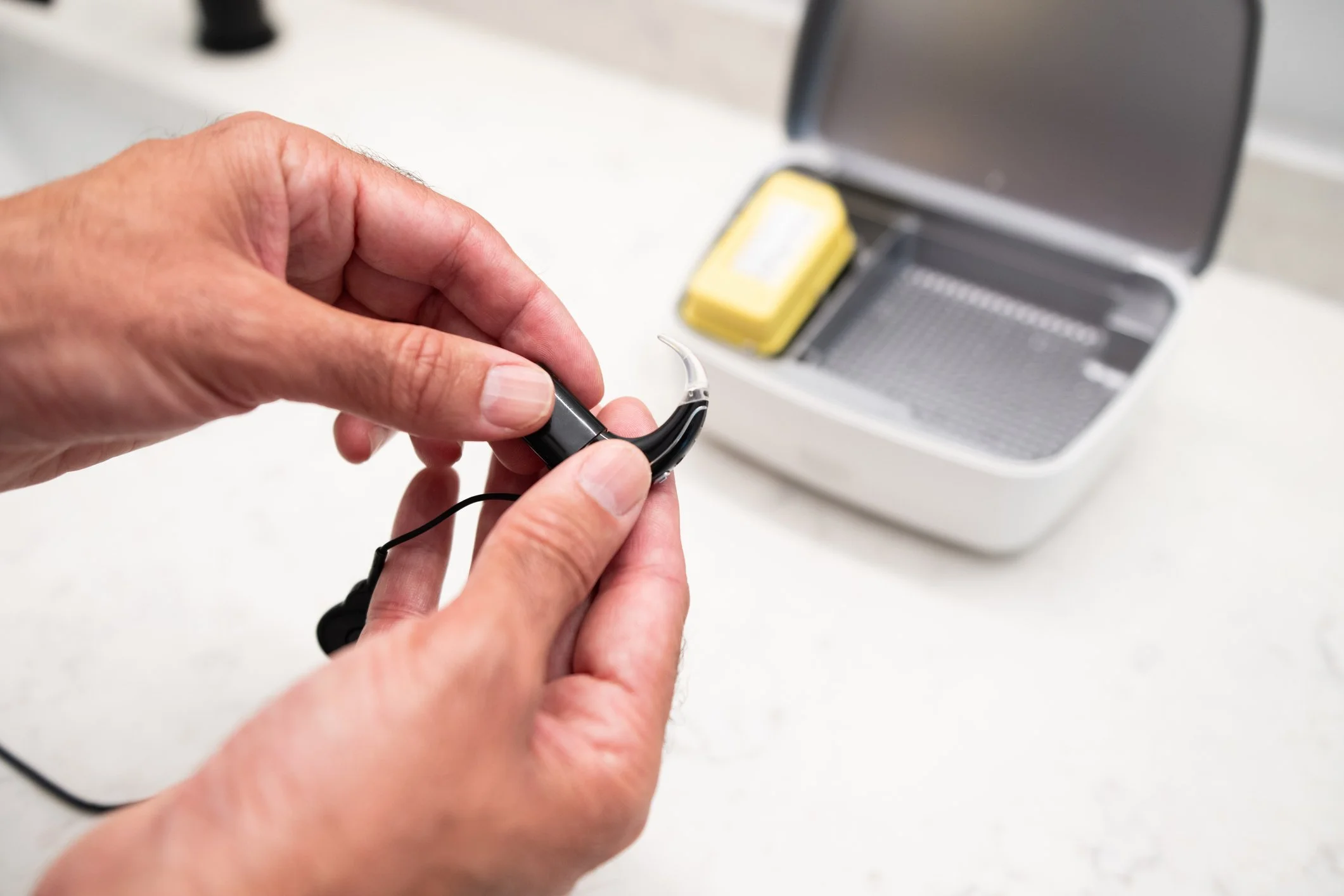
Adult Therapy
We provide aural habilitation therapy for adult patients (ages 18+) with cochlear implants and hearing aids. We support adults on their listening journey by providing auditory training, guidance with understanding their technology, and resources for practice. We aim to integrate family into the therapy process.
Therapy sessions can take place in person or virtually. We use a HIPPA secure platform equipped with captions for teletherapy sessions.
Adult Aural Habilitation
Aural habilitation therapy focuses on improving listening and communication skills for individuals with cochlear implants and hearing aids.
Individualized therapy usually focuses on:
Building Listening Skills
Managing Technology
Evaluating Listening Environments
Communication Strategies
Frequently Asked Questions
-
Please find a list of resources below:
Hearing Loss Association of America: Aural Habilitation
American Speech Language Association: Adult Audiologic (Hearing) Rehabilitation
-
This is dependent on various factors and is best determined after the first few sessions. The therapist will gather hearing history, assess listening skills and work to set therapy goals along with each patient. Based on the desired goals of each patient, the therapist will recommend therapy frequency (i.e., once a week, twice a month etc).
-
Adults with cochlear implants and/or hearing aids who are seeking support with listening skills, technology, and understanding their hearing will benefit from therapy.
Your audiologist may recommend that you complete therapy after cochlear implant activation. Therapy is elective. If you do not wish to participate, discuss your goals with your audiologist for guidance with home practice.
Therapy can be benefical at any point in a person’s listening journey. For example, some patients seek to return for additional therapy due to a change in their hearing technology or because of an increase in listening demands.
Counseling both the patient and their communication partners is an important part of the therapy program. Communication partners (spouse, family members, friends) are encouraged to join therapy sessions. When a family member joins therapy they can become instrumental in helping patients practice listening outside of therapy. Family members will learn about hearing loss, and communication supports to implement at home.
-
Many patients have found the following resources helpful in their listening journey. Click on each title to be linked to the source.
Apps for Listening Practice:
Online Resources for Listening Practice:
The Listening Room by Advanced Bionics
Randall’s ESL Cyber Listening Lab
Cochlear Americas Auditory Training Exercises
To Understand Your Hearing:
Understanding Cochlear Implants and Hearing Fatigue
American Cochlear Implant Alliance: Adult Cochlear Implantation
How to Hear Better in Challenging Places
Reconnecting with Music:
Tips from an Audiologist to Enjoy Music
To Educate Family Members & Friends:
9 Do’s & Don’ts When Talking to a Person with Hearing Loss
Everything You Need to Know About Cochlear Implants (Video)
To Connect with Others:
Cochlear Implant Support Group (Facebook)
Hearing Loss Association of America (Find a Chapter)
Advanced Bionics Cochlear Implant Users Group (Facebook)
Med El Cochlear Implant Discussion Group (Facebook)
Association of Late Deafened Adults (San Jose, CA Chapter)
American Sign Language:
San Francisco ASL Group (Meetup)
Accessibility:
Captions for AMC Movie Theaters
Cineplex Closed Caption Viewing System
Get Started
We work directly with Kaiser given a recommendation for therapy from your audiologist. For all other insurance carriers we are considered out-of-network. If you have a Kaiser authorization for therapy and would like to schedule your first session please contact us.





